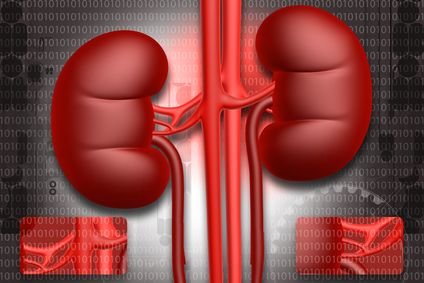Understanding Kidney Function Numbers and What They Mean
Your kidneys job is to remove the extra wastes and fluids, including urea, from your body in the form of urine. When they do not do this, the fluid retention and waste build up products can leave you with dangerous changes to your body that can even become life-threatening. There are various kidney function labs that your doctor can give you to test the functionality of your kidneys.
These will show your doctor where your kidney function numbers are at and if there really is a problem. These numbers are calculated based on your sex, age and creatinine and urea levels.
Symptoms You Could Experience with Elevated Creatinine and Urea Levels
High creatinine levels can cause you to feel confused, be extremely tired, have difficulty breathing or be dehydrated. High urea levels can produce fatigue, nausea, insomnia, dry skin and body odor. High levels of urea are generally not toxic, but high levels of both of these can indicate that the functioning of your kidneys is poor. If you feel you are having these symptoms, the best way to know if you are having any trouble with your kidneys is to see your doctor so they can test out your kidney function numbers with renal function labs.
More on Your Kidney Function Numbers
The normal range for kidney function numbers is between 80 and 129. Anything below 80 is generally quite bad. This will vary between men and women and it is dependent on muscle mass. Petite people without much muscle mass will likely have a low kidney number. It is important for you to know your kidney number, as a lot of people do not know this or even what one is, and therefore they don’t wind up getting to their doctor until their kidney function is so low that they will require dialysis or kidney replacement.
Before Testing
Before performing any kidney function labs, your doctor should take a total family health history and you own history to determine your food or drug intake. There are many over-the-counter and prescription medications that will affect the results of your blood and urine kidney function test. Depending on your diet, this could affect the results of the test as well. This way you can insure that your kidney function numbers are being read correctly.
How Some Conditions Affect the Functioning of Your Kidneys
There are several conditions that are likely to affect the ability of your kidneys to function properly. Some of these can lead to a fast decline in kidney function while others are a slow and gradual decline. They both, however can result in the build-up of the toxic waste in your blood. The renal function labs that your doctor can give you will help to determine the levels of these substances that are present that your kidneys normally regulate. This will help to find out the cause and extent of your kidney dysfunction.
Your doctor will use your kidney function numbers in various ways. When they’ve made the diagnosis that there is kidney disease and what kind of disease is causing the problem, they might recommend to you a specific treatment. Even though there isn’t any drug therapy that will specifically prevent your kidney disease from progressing, your doctor can make other recommendations for treatments which will slow the disease as much as possible. One thing your doctor can do is to prescribe medication for blood pressure, or diabetes treatments. If your kidney disease is getting worse, your doctor can talk to you about hemodialysis, or the cleansing of your blood by taking out the excess minerals, fluids and wastes. Your doctor may even speak with you about a kidney transplant surgery.
Various Kidney Function Tests
There are as mentioned several different kidney function labs that your doctor can run to find out your kidney function numbers. A common and inexpensive one is a routine urinalysis, which is usually the first test that is ran if you have suspected kidney problems. It is checked for things such as odor, appearance, color and concentration, plus chemically for substances like glucose, protein and the pH. Plus it is microscopically tested for the presence of elements such as white and red blood cells and epithelial cells, crystals, bacteria, and casts. If the results from this test indicate the possibility of kidney disease or an impaired kidney, your doctor will run additional tests such as a urea clearance test, creatinine clearance test, urine osmolality test, urine protein test, creatinine test, blood urea nitrogen test and other blood tests.
Catching any dysfunction or failing of your kidneys as soon as possible is very important, so you should be aware of your kidney function numbers. You can do this by asking for it to be checked during routine physicals at your doctor when they are already taking a urine test. Keeping on top of your health can help catch any problems early on so you can better treat any problems that may come up.
| Written by: | Michal Vilímovský (EN) |
|---|---|
| Education: | Physician |
| Published: | December 24, 2012 at 7:24 AM |
| Next scheduled update: | December 24, 2014 at 7:24 AM |
Related articles
Get more articles like this in your inbox
Sign up for our daily mail and get the best evidence based health, nutrition and beauty articles on the web.







Ache in left arm that you should not ignore
Alkaline water dangers: why you should not drink it
How to Avoid Sleepiness While Studying?
23 Foods That Increase Leptin Sensitivity
Low dopamine (e.g. dopamine deficiency): causes, symptoms, diagnosis and treatment options
Swollen taste buds: the ultimate guide to causes, symptoms and treatment
Thin endometrial lining: causes, symptoms, diagnosis and treatment
Pimples inside nose: the complete guide
Holes in tonsils: definition, symptoms, treatment and prevention
How to deal with an ingrown hair cyst
Allegra vs. Zyrtec vs. Claritin
How to get rid of phlegm (excessive mucus) in throat? Detailed guide to medical and home remedies, symptoms and causes
Allergy to penicillin and alternative antibiotics
What causes stomach ache after meals?
Liver blood test results explained